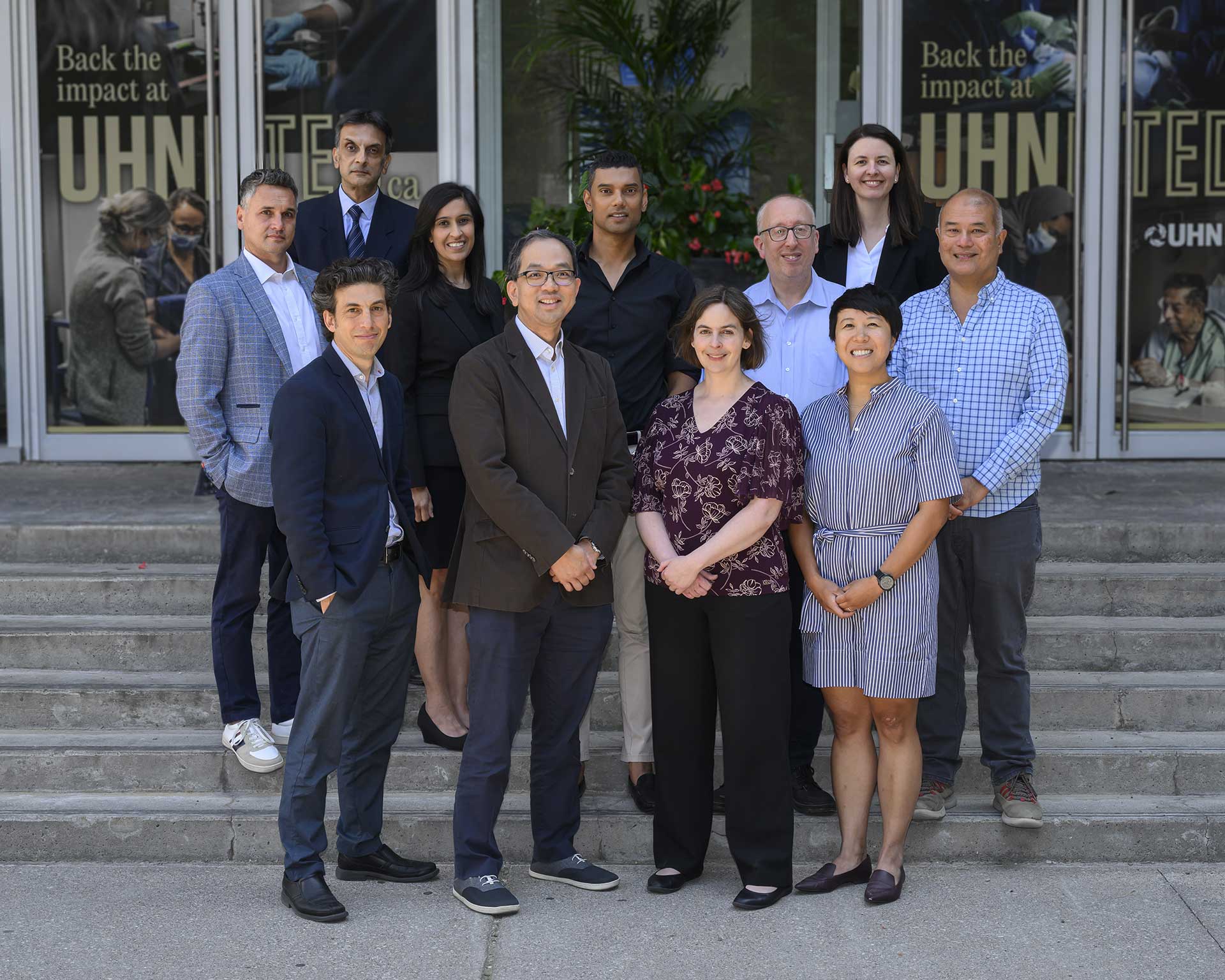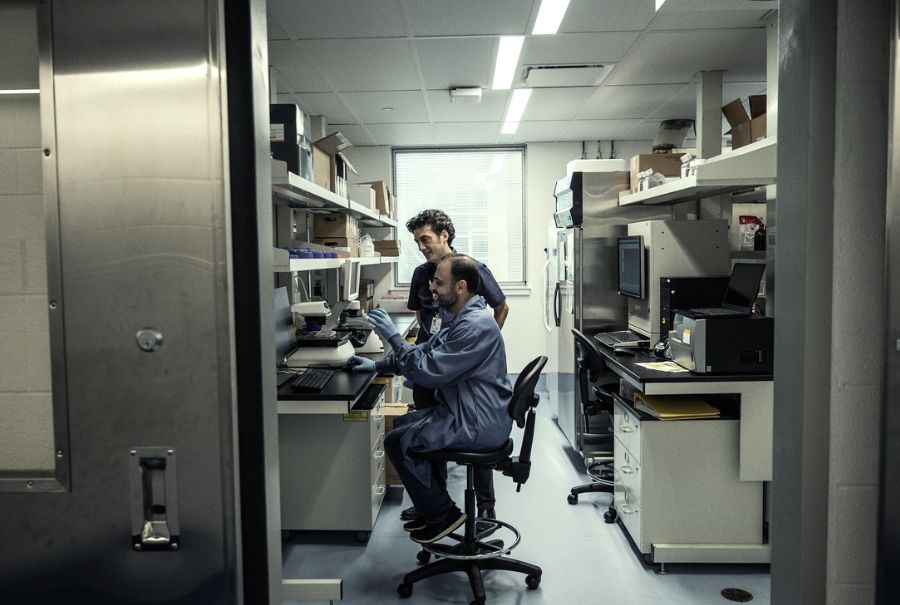
Liver
The liver is a vital organ of the body, responsible for hundreds of chemical actions that we need to survive. It carries out more than 500 essential tasks, and yet the liver remains a black box, something most of us don’t give much thought to – unless something goes wrong. There are more than 100 liver diseases, and it is estimated that one in four Canadians live with some form of liver disease.
The Toronto Centre for Liver Disease at UHN is the largest and most comprehensive clinical and research program in liver disease in Canada and one of the top programs of its kind in the world. Every year, the Centre’s teams care for more than 25,000 patients with every liver condition. Through close collaboration with the Ajmera Transplant Centre at UHN, it is the country’s hub for liver transplantation and living liver donation.
UHN innovators are on the global front line of addressing the major healthcare challenges posed by liver disease, and have a growing list of world-first achievements, including:
• The first to describe genes associated with an autoimmune liver disease
• The first curative therapy for hepatitis C that treats all strains of the virus
• The first to show how nanoparticles interact with the liver, unlocking potential new treatments
The Schwartz Reisman Liver Research Centre at UHN is the place where these discoveries begin, and brings together an exceptional group of more than 50 brilliant minds with a common goal: to develop better treatments and cures and to prevent long-term complications like liver cancer and liver failure, reducing or eliminating the need for liver transplantation.
We need donor support to help UHN’s scientists revolutionize how we think about and treat liver disease, both here and around the world.
Fundraising priorities
In a paradigm-shifting world first in 2018, a team at UHN announced that they had created a map of the cells in human liver, revealing for the first time differences between individual cells that can have a profound impact on their behaviour in liver tissue, tumours and disease. Looking to the future, UHN’s scientists will use this information to help identify the specific drivers of liver damage. By doing so, they can pursue new ways to use drugs and the body’s own immune system to target, treat and cure liver disease.
Being at the global forefront of organ repair technology, UHN’s scientists will develop innovative strategies that ensure healthy livers for life. These include cell-based therapies to restore function to damaged livers and chemotherapeutics to reprogram cells in the liver to treat autoimmune disease and to eliminate the need for harmful immunosuppression in transplant recipients. They will also strive to use cell-based and targeted drug therapies to stimulate liver regeneration. Taking this research one step forward, they will attempt to build new livers from scratch using a patient’s own stem cells.
Liver cancer is becoming more and more common. It is also very difficult to treat. The team will target cutting-edge basic research in a way that is immediately relevant to patients by:
- Developing new therapies that minimize liver toxicity and complications
- Targeting the liver and the tumour selectively
- Enabling multiple anti-cancer strategies, such as immunotherapy, to be harnessed.
By studying liver cancer in the lab, researchers will also develop tests that predict how individual tumours respond to new treatment strategies. In the future, these tests may be used to identify patients at risk of developing cancer, and to personalize therapy for each individual.
Contact information:
Jason Balaban, CFRE
Associate Campaign Director, Major Gifts
647-502-0165
[email protected]


